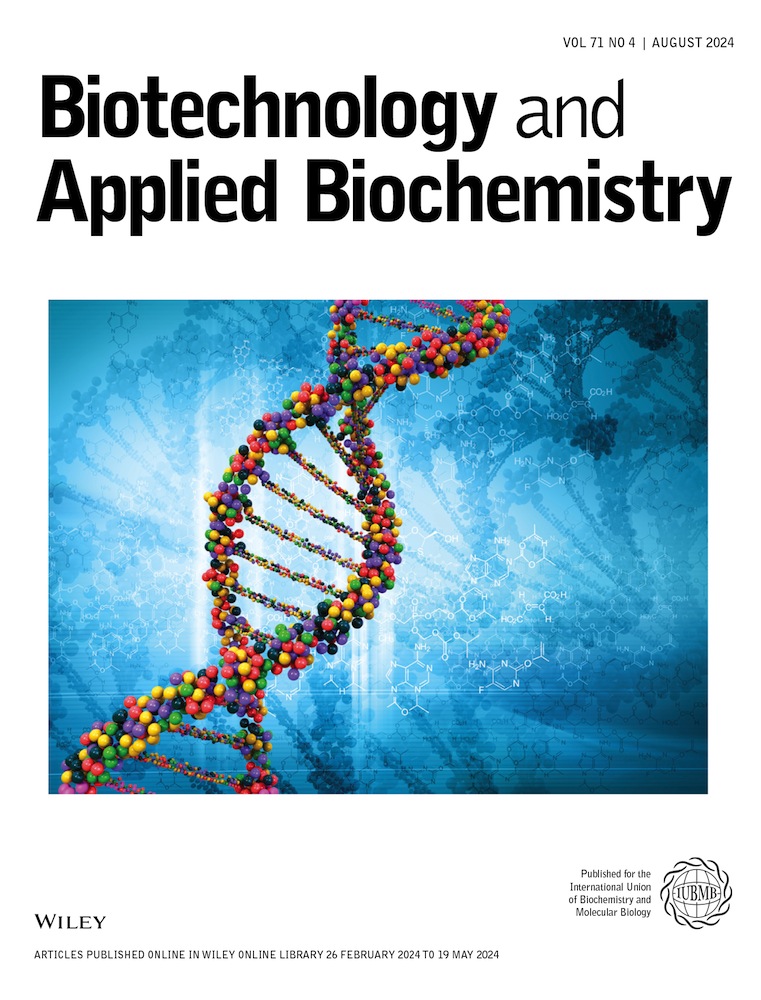水杨梅苷通过抑制 GSDMD 驱动的角质形成细胞凋亡缓解咪喹莫特诱导的牛皮癣
IF 3.2
4区 生物学
Q2 BIOCHEMISTRY & MOLECULAR BIOLOGY
引用次数: 0
摘要
牛皮癣是一种常见的与免疫相关的多基因炎症性皮肤病。皂甙(SAL)具有抗炎和抗氧化作用,可用于治疗皮肤病。然而,SAL 对银屑病的具体作用仍不清楚。本研究旨在探讨 SAL 对银屑病的治疗效果。用咪喹莫特(IMQ)治疗小鼠,建立体内银屑病模型。通过苏木精和伊红染色进行组织学分析。通过酶联免疫吸附试验测定细胞因子的释放。此外,还通过反转录定量聚合酶链反应测定了 mRNA 水平。蛋白质表达通过 Western 印迹法进行评估。Gasdermin D(GSDMD)和Ki-67的表达水平通过免疫组织化学法进行测定。Caspase 1和GSDMD的表达水平通过免疫荧光法测定。此外,还通过流式细胞术分析了巨噬细胞功能和角质形成细胞的热解。细胞增殖采用 5- 乙炔基-2ʹ脱氧尿苷测定法。SAL 可减轻 IMQ 诱导的银屑病。IMQ介导的GSDMD驱动的热蛋白沉积和角质细胞过度增殖促进了M1巨噬细胞的极化。然而,SAL 治疗抑制了 GSDMD 的表达,从而抑制了角质形成细胞的增殖和热蛋白沉积,促进了 M2 巨噬细胞的极化。GSDMD 的缺乏进一步促进了 SAL 的作用并抑制了银屑病的发展。总之,我们的研究结果表明,SAL 对银屑病具有保护作用。具体来说,它通过调节 M2 巨噬细胞的极化和抑制银屑病免疫微环境诱导的角质形成细胞脓毒症驱动的增殖来发挥抗炎作用。本文章由计算机程序翻译,如有差异,请以英文原文为准。
Salidroside alleviates imiquimod-induced psoriasis by inhibiting GSDMD-driven keratinocyte pyroptosis
Psoriasis is a common immune-related polygenic inflammatory skin disease. Salidroside (SAL) exerts anti-inflammatory and antioxidant effects and is used to treat skin diseases. However, the specific effects of SAL on psoriasis remain unclear. In this study, we aimed to investigate the efficacy of SAL for psoriasis treatment. Mice were treated with imiquimod (IMQ) to establish an in vivo psoriasis model. Histological analysis was conducted via hematoxylin and eosin staining. Cytokine release was determined via enzyme-linked immunosorbent assay. Additionally, mRNA levels were determined via reverse transcription-quantitative polymerase chain reaction. Protein expression was assessed via Western blotting. Gasdermin D (GSDMD) and Ki-67 expression levels were determined via immunohistochemistry. Caspase 1 and GSDMD expression levels were determined via immunofluorescence assay. Furthermore, macrophage function and keratinocyte pyroptosis were also analyzed via flow cytometry. Cell proliferation was determined using 5-ethynyl-2ʹdeoxyuridine assay. SAL alleviated IMQ-induced psoriasis. IMQ-mediated GSDMD-driven pyroptosis and keratinocyte hyperproliferation promoted M1 macrophage polarization. However, SAL treatment suppressed GSDMD expression, thereby inhibiting keratinocyte proliferation and pyroptosis and promoting M2 macrophage polarization. GSDMD deficiency further promoted the effects of SAL and suppressed psoriasis progression. Overall, our findings suggest that SAL exerts protective effects against psoriasis. Specifically, it exerts anti-inflammatory effects by regulating M2 macrophage polarization and inhibiting keratinocyte pyroptosis-driven proliferation induced by the immune microenvironment in psoriasis.
求助全文
通过发布文献求助,成功后即可免费获取论文全文。
去求助
来源期刊

Biotechnology and applied biochemistry
工程技术-生化与分子生物学
CiteScore
6.00
自引率
7.10%
发文量
117
审稿时长
3 months
期刊介绍:
Published since 1979, Biotechnology and Applied Biochemistry is dedicated to the rapid publication of high quality, significant research at the interface between life sciences and their technological exploitation.
The Editors will consider papers for publication based on their novelty and impact as well as their contribution to the advancement of medical biotechnology and industrial biotechnology, covering cutting-edge research in synthetic biology, systems biology, metabolic engineering, bioengineering, biomaterials, biosensing, and nano-biotechnology.
 求助内容:
求助内容: 应助结果提醒方式:
应助结果提醒方式:


